第13章 Chap. XVI(6)
XVI. Kings being once constituted, its no doubt but the civill authority belonged to them, for the Kingdome of God by the way of Priesthood, (God consenting to the request of the Israelites) was ended; which Hierom also marks speaking of the books of Samuel: Samuel (sayes he) Eli being dead, and Saul slain, declares the old Law abolisht; Furthermore the Oaths of the new Priesthood, and new Soveraignty in Zadok, and David, do testifie, that the Right whereby the Kings did rule, was founded in the very concession of the People. The Priest could rightfully do only what God had commanded, but the King had by right whatsoever power over every man that each man by right had over himself; for the Israelites granted him a Right to judge of all things, and to wage warre for all men; in which two are contained all Right whatsoever can be conceived from man to man. Our King (say they) shall judge us, and goe out before us, and fight our battails, 1. Sam. 8. 20. Iudicature therefore belonged to the Kings; but to judge is nothing else then by interpreting to apply the facts to the Lawes; to them therefore belonged the interpretation of Lawes too. And because there was no other written word of God acknowledged beside the Law of Moyses, untill the Captivity, the authority of interpreting Gods word, did also belong to the Kings; Nay, forasmuch as the word of God must be taken for a Law, if there had been another written word beside the Mosaicall Law, seeing the interpretation of Lawes belonged to the Kings, the interpretation of it must also have belonged to them. When the book of Deuteronomie (in which the whole Mosaicall Law was contained) being a long time lost, was found again, the Priests indeed asked Counsell of God concerning that book; but not by their own authority, but by the Commandement of Iosiah, and not immediately neither, but by the meanes of Holda the Prophetesse. Whence it appears that the authority of admitting books for the word of God, belonged not to the Priest; neither yet followes it that that authority belonged to the Prophetesse, because others did judge of the Prophets whether they were to be held for true, or not. For to what end did God give signes, and tokens to all the People, whereby the true Prophets might be discerned from the false, namely, the event of predictions, and conformity with the Religion establisht by Moyses, if they might not use those marks? The authority therefore of admitting books for the word of God belonged to the King, & thus that book of the Law was approved, and received again by the authority of King Iosiah, as appears by the fourth book of the Kings, 22. 23. Chap. where it is reported that he gathered together all the severall degrees of his Kingdome, the Elders, Priests, Prophets, and all the people, and he read in their eares all the words of the Covenant, that is to say, he caused that Covenant to be acknowledged for the Mosaicall Covenant, that is to say, for the word of God, and to be again received, and confirmed by the Israelites. The civill power therefore, and the power of discerning Gods word from the word of men, and of interpreting Gods word even in the dayes of the Kings was wholly belonging to themselves. Prophets were sent not with authority, but in the form, and by the Right of Proclaimers, and Preachers, of whom the hearers did judge; and if perhaps these were punisht who did not listen to them plainly, teaching easie things, it doth not thence follow, that the Kings were obliged to follow all things which they in Gods name did declare, were to be followed. For though Iosiah the good King of Iudah were slain because he obeyed not the word of the Lord from the mouth of Necho King of AEgypt, that is to say, because he rejected good Counsell though it seemed to come from an enemy, yet no man I hope will say that Iosiah was by any bond either of divine, or humane Lawes obliged to beleeve Pharoah Necho King of AEgypt, because he said that God had spoken to him. But what some man may object against Kings, that for want of learning, they are seldome able enough to interpret those books of antiquity in the which Gods word is contained, and that for this cause it is not reasonable that this office should depend on their authority, he may object as much against the Priests, and all mortall men, for they may erre; and although Priests were better instructed in nature, and arts then other men, yet Kings are able enough to appoint such interpreters under them; and so, though Kings did not themselves interpret the word of God, yet the office of interpreting them might depend on their authority; and they who therefore refuse to yeeld up this authority to Kings, because they cannot practise the office it selfe, doe as much as if they should say that the authority of teaching Geometry must not depend upon Kings, except they themselves were Geometricians. We read that Kings have prayed for the People, that they have blest the people, that they have consecrated the Temple, that they have commanded the Priests, that they have removed Priests from their office, that they have constituted others. Sacrifices indeed they have not offered, for that was hereditary to Aaron, and his sonnes; but it is manifest, as in Moyses his life time, so throughout all ages from King Saul to the captivity of Babylon, that the Priesthood was not a Maistry, but a Ministry.